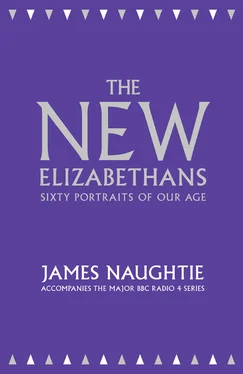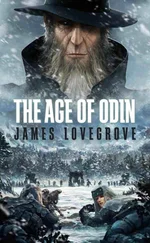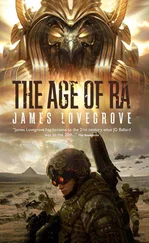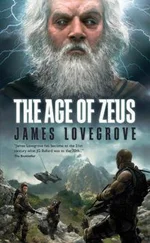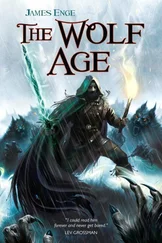There was none of David’s tales of savage Provence, or whole-sheep-stuffing from the Greek islands, and Delia was a classless cook to Elizabeth’s grande dame. But they were at the same game: reminding people, encouraged to turn bland by fashion and advertising and the marketing of the unimaginative, that there was pleasure to be had in the kitchen. When David was made OBE at Buckingham Palace in 1976, she reported afterwards that when she said she wrote cookery books, the monarch replied simply, ‘How useful.’ Nothing about savage melancholy, nor the passion of a fig, nor the joys of a long day at the pot. But, through it all, Elizabeth David did want to be useful too.
Graham Greene’s game was danger. As a novelist he played with characters who were always throwing the dice and gambling with their moral fate. He was a spy, he said he’d played Russian roulette with a loaded gun (though hardly anyone knew whether to believe him), he was fascinated by treachery and claimed kinship with the betrayers, he toyed with women and religion.
But, through it all, the spine of his life was a high seriousness about writing. When he started to call some of his books ‘entertainments’ he was having fun with people again, for stories like Our Man in Havana didn’t abandon that interest in loyalty and deceit, guilt and shame. This was his territory, a place he made his own, where anxious people dealt with a world beyond their understanding, grappling for handholds and never finding it easy. W.H. Auden spoke of things being Graham Greenish and everyone knew what colour that was. Dark, menacing, strangely inviting. From the thirties on, his output had been growing – novels, film criticism, essays, film scripts – and his lugubrious, rangy, world-weary figure, wreathed in smoke, seemed to beckon his readers to a place that might be dangerous and treacherous, but was somehow familiar.
By the time he published The End of the Affair in 1951 Greene was established at the top of the tree. Three characters, above all, had put him there: Pinkie the teenage gangster in Brighton Rock , the whisky priest in The Power and the Glory and Scobie in The Heart of the Matter , who were all in some way caught between their instincts and their obligations, and tortured as a result. He could produce moral terror in the blink of an eye, and by the fifties it seemed that he was the contemporary novelist who had the most sensitive, fingertip feel for the confusions and the alarms of the time.
‘Greene-land’ – a label that irritated him – was a place where people were alone, bewildered by the dilemmas forced on them by the world and haunted by their inability to reconcile that pain with their sense of something beyond: the divine, or at least the unchanging. Greene always preferred to be called a novelist who was a Catholic rather than a Catholic novelist, but his conversion in the twenties was the event that shaped him as a writer. He called himself an intellectual but not an emotional Catholic, and you don’t have to read much of his fiction to start to understand the tension.
By the end of his life he was calling himself a ‘Catholic atheist’, and left even his friends to wonder where his journey had taken him. They did know that by the fifties he had staked out territory that he controlled, in which the lies and betrayals of daily life – about love, or country, or personal pride – were played out on a wider, dark stage, where you could never be sure what was waiting in the wings.
Naturally this irritated some people. When George Orwell reviewed The End of the Affair (based on one of Greene’s own liaisons) he expressed the frustration of someone who found the possible intervention of divine judgment a distraction from the much more important business of human decency. He wrote in the New Yorker : ‘He appears to share the idea, which has been floating around ever since Baudelaire, that there is something rather distingué in being damned; Hell is a sort of high-class nightclub, entry to which is reserved for Catholics only.’
It definitely had a dark allure for Greene, whose characters so often flirted with whatever went on in that nightclub or were drawn to it by some urge that they couldn’t understand. The main character in his first book, The Man Within , is a hunted man, and right through to his later fiction – think of the spy novel The Human Factor , published in the late seventies – he was preoccupied with the figure pursued across the landscape by demons, some of them invisible and some of them deep inside and all too familiar.
There was another reason for his popularity, of course. He knew how to tell a story, how to play with tension – above all, how to hook a reader. The first sentence of Brighton Rock ensures that you’re bound to read on: ‘Hale knew, before he had been in Brighton for three hours, that they meant to murder him.’ His screenplay for Orson Welles in The Third Man showed that he understood exactly how film too could tell a story: every piece falls into place, the rhythm never falters. It’s classic Greene: a man seeks justice for a friend, killed in the dark streets of post-war Vienna, only to discover that he has faked his death to escape from the consequences of his own crimes.
For Greene the fifties began with The End of the Affair and ended with Our Man in Havana and A Burnt-out Case . All three were about weakness and deceit. And in between came one of his greatest novels, The Quiet American . He’d worked in Indo-China as a journalist, and the story of Pyle, the American of the title, foreshadowed all the arguments that would traumatize America over Vietnam a decade later. Pyle is idealistic and at the same time ruthless in his belief about what can and should be done to the Communists, and Greene wove a moral tale which got him targeted by the Washington authorities as anti-American, in an age when in their eyes the distinction between good and evil was rather clearer than it could ever be in a Greene story.
And readers knew that there was something going on at home too. The novel was published in 1955, the year before the débâcle of the Suez invasion. That decision by Anthony Eden’s government to deceive Washington and collude with France and Israel in attacking Egypt was the foreign policy catastrophe of the age, dividing the country, shaking the political class. It was this event, more than any other, that a few years later led a former American secretary of state to coin a famous aphorism which hurt with its stinging truth. ‘Britain has lost an empire and not yet found a role,’ said Dean Acheson.
Greene, in The Quiet American , told a story that caught the wind that was blowing in south-east Asia and would bring trouble along. It also picked up, at home, the nervousness of an age in which the deep freeze of the Cold War did not stop people from realizing that everything was on the move. The post-war world was being reordered, and no one yet understood the consequences. Greene was a storyteller who was also a poet of the moment, picking up whispers from the street and tremblings of the political web.
He’d also done it as a professional spy. We know only the sketchiest outline of what he did for the Secret Intelligence Service, MI6. But he was there and enjoyed saying that he had an identification number in the service which he subsequently attached to the controller of the hapless agent Wormold in Our Man in Havana . Wormold finds himself recruited by British intelligence and tempted to enhance his persona as a spy, first by some fairly harmless exaggeration and then by spectacular invention. But he survives. After a fashion.
Читать дальше
